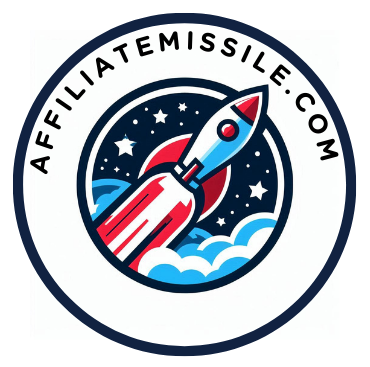
Intro
Affiliate marketing has become a popular way for individuals to generate passive income online. Whether you’re a seasoned marketer or just starting out, the prospect of earning money by promoting products or services for others is appealing. What makes affiliate marketing particularly enticing is that you don’t need to create your own products or services — all you have to do is recommend them and earn a commission.
For beginners, the barriers to entry might seem high — setting up a website, driving traffic, and managing affiliate programs can feel overwhelming. But the good news is, there are several platforms and websites that allow you to start affiliate marketing for free. These websites eliminate the need for costly upfront investments and provide user-friendly tools to get started quickly.
In this article, we’ll explore some of the best free affiliate marketing websites, how they work, and how you can leverage them to start earning money online.
What Is Affiliate Marketing?
Before diving into the best free platforms, let’s quickly define affiliate marketing for those new to the concept.
Affiliate marketing involves promoting a product or service and earning a commission for each sale or action made through a link you provide. Affiliates (you) partner with merchants (businesses) who offer products, and your role is to drive traffic to their sites. If someone makes a purchase or completes a desired action (e.g., signing up for a newsletter), you earn a commission, typically a percentage of the sale price.
Affiliate marketing can be done via a blog, YouTube channel, social media, or even email marketing. The key to success lies in choosing the right affiliate program, targeting the right audience, and having a platform to promote your links.
Why Use Free Affiliate Marketing Websites?
Using free affiliate marketing websites to get started offers several advantages:
- Low Investment: Many people hesitate to start affiliate marketing because of the perceived need for an initial investment. Free websites allow you to test the waters without financial risk.
- Ease of Use: Most of these platforms come with built-in tools for content creation, traffic analysis, and more, making it easier for beginners to navigate the affiliate marketing landscape.
- Learning Opportunities: Free affiliate marketing websites often offer resources such as tutorials, guides, and community forums where you can learn from experienced marketers.
- Flexibility: You can work from anywhere and choose your niche or industry. Whether you’re promoting tech gadgets, beauty products, or online services, these platforms support a wide range of affiliate programs.
Top Free Affiliate Marketing Websites
Here are some of the best free platforms you can use to start affiliate marketing:
1. WordPress.com
Best for: Bloggers and content creators who want a simple, cost-effective platform to promote affiliate products.
WordPress.com is one of the most popular free website-building platforms. While WordPress.org (self-hosted) offers more customization options, WordPress.com is free and easy to use for beginners. You can create a blog or site with their free plan and start promoting affiliate links immediately.
How It Works:
- Sign up for a free WordPress.com account.
- Select a theme and start creating content, such as blog posts, reviews, or product recommendations.
- Add affiliate links to your posts or include banners from affiliate programs.
- Once you drive traffic to your website and people make purchases through your links, you earn commissions.
Pros:
- No upfront costs.
- Easy-to-use drag-and-drop interface.
- A wide variety of themes and plugins to choose from.
- Access to a vast WordPress user community and resources.
Cons:
- Limited customization options on the free plan (you’ll have WordPress branding).
- Limited monetization options compared to the self-hosted WordPress.org version.
2. Blogger
Best for: Those looking for an easy-to-setup platform for blogging and affiliate marketing.
Blogger, owned by Google, is another free platform perfect for affiliate marketers. The simplicity and integration with Google’s other tools (such as Google Analytics) make it a great choice for beginners.
How It Works:
- Sign up for a free Blogger account and set up a blog.
- Choose a theme and start writing content.
- Integrate affiliate links within your posts.
- Drive traffic to your site using SEO, social media, and other free promotional methods.
Pros:
- Free to use with no hidden costs.
- Full control over your content.
- Easy integration with Google Analytics and other Google services.
- A simple, user-friendly interface.
Cons:
- Limited customization options and design flexibility.
- Less professional-looking than self-hosted WordPress sites.
3. Wix
Best for: People who want a highly visual website and are comfortable with drag-and-drop editors.
Wix is a website builder that offers both free and paid plans. It’s ideal for creating visually appealing websites, and it allows you to add affiliate links easily. While the free plan comes with some limitations (such as Wix branding on your site), it can be a good option for affiliate marketers just starting out.
How It Works:
- Sign up for a free Wix account.
- Choose from a range of templates designed for blogs, portfolios, or eCommerce.
- Add affiliate links to your pages or posts.
- Promote your site and earn commissions when visitors make purchases through your affiliate links.
Pros:
- Easy-to-use drag-and-drop website builder.
- A large library of professional templates.
- Supports a variety of media types, such as images and videos.
Cons:
- Ads and branding appear on your free website.
- Limited functionality on the free plan.
4. Weebly
Best for: Those who prefer an easy-to-use website builder with good design options.
Weebly is another excellent platform for creating a free website for affiliate marketing. It’s particularly user-friendly and provides drag-and-drop features for building a site quickly. You can also integrate affiliate links and monetize your site without paying any fees upfront.
How It Works:
- Sign up for a free Weebly account and start building your website.
- Add affiliate links to your posts or product pages.
- Use SEO tools to help drive organic traffic to your site.
Pros:
- Easy-to-use interface with drag-and-drop functionality.
- Clean and professional-looking templates.
- Built-in analytics tools.
Cons:
- Ads appear on your free website.
- Limited customization compared to paid plans.
5. Medium
Best for: Writers who want to share their content and earn from affiliate links without building a full website.
Medium is a platform where you can write and publish articles, and it’s a great option if you prefer writing over building and maintaining a website. Medium has a built-in audience, which makes it easier to reach potential readers and potential affiliate customers.
How It Works:
- Create a free Medium account.
- Write articles related to your niche, and naturally integrate affiliate links.
- Medium has a Partner Program, but you can also earn money through affiliate commissions by promoting products or services within your articles.
Pros:
- Quick and easy to set up.
- Built-in audience with millions of readers.
- No need for website management or technical skills.
Cons:
- Limited control over branding.
- Medium has its own monetization system (if you want to participate in that, you’ll need to meet certain requirements).
6. Affiliate Networks (ShareASale, CJ, Rakuten, etc.)
Best for: Affiliate marketers who are ready to connect with multiple merchants at once.
Affiliate networks like ShareASale, CJ Affiliate, and Rakuten Marketing provide a platform where you can find multiple affiliate programs in one place. While they aren’t websites in themselves, they allow you to join multiple programs without having to visit different merchants’ websites individually. Most of these networks allow you to sign up for free and find products to promote right away.
How It Works:
- Sign up for a free account on any of these networks.
- Browse their affiliate programs and choose those that align with your audience.
- Once you’re approved, you’ll get access to affiliate links and banners to use on your website, blog, or social media.
Pros:
- A large variety of affiliate programs.
- Easy to track performance and commissions.
- Access to merchants from various industries.
Cons:
- Requires more effort to promote products across multiple platforms.
- Network rules and guidelines may limit how you can promote offers.
Final Thoughts
Getting started with affiliate marketing doesn’t have to cost a fortune. By using free affiliate marketing websites and platforms, you can create a website, publish content, and start promoting products with minimal investment. The platforms listed above offer easy-to-use tools for affiliate marketing, making it possible for you to generate income while learning the ropes of digital marketing.
While free websites are an excellent starting point, remember that as your business grows, you might eventually want to invest in more advanced tools and strategies. But for now, these free platforms provide a low-risk, high-reward opportunity to dive into the world of affiliate marketing. Happy marketing!
To learn more, Click Here to check out my personal affiliate link for WealtnyAffiliate.com. Access their free trial and see how they can take your affiliate marketing to the next step!
